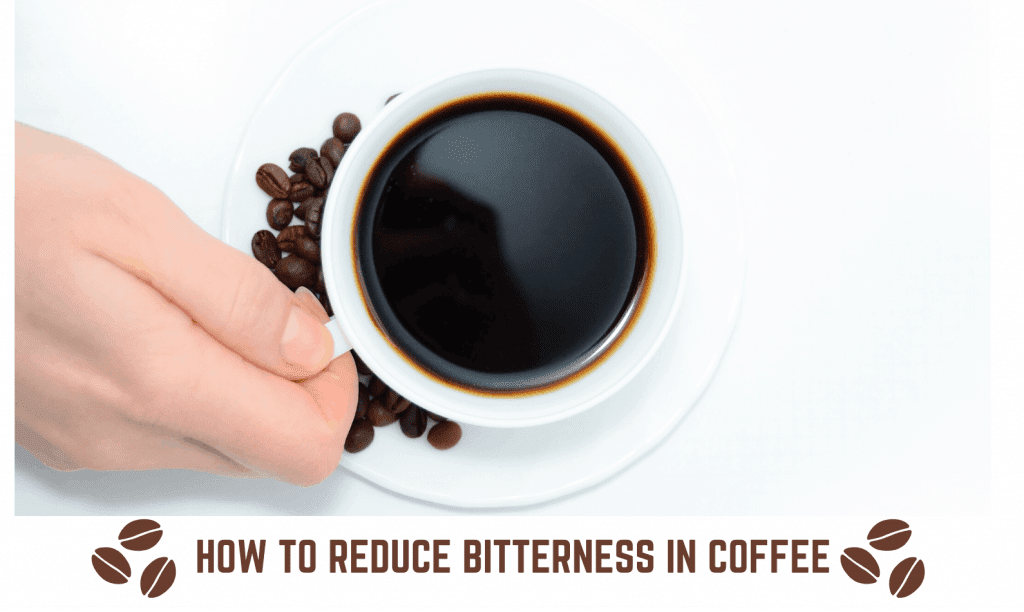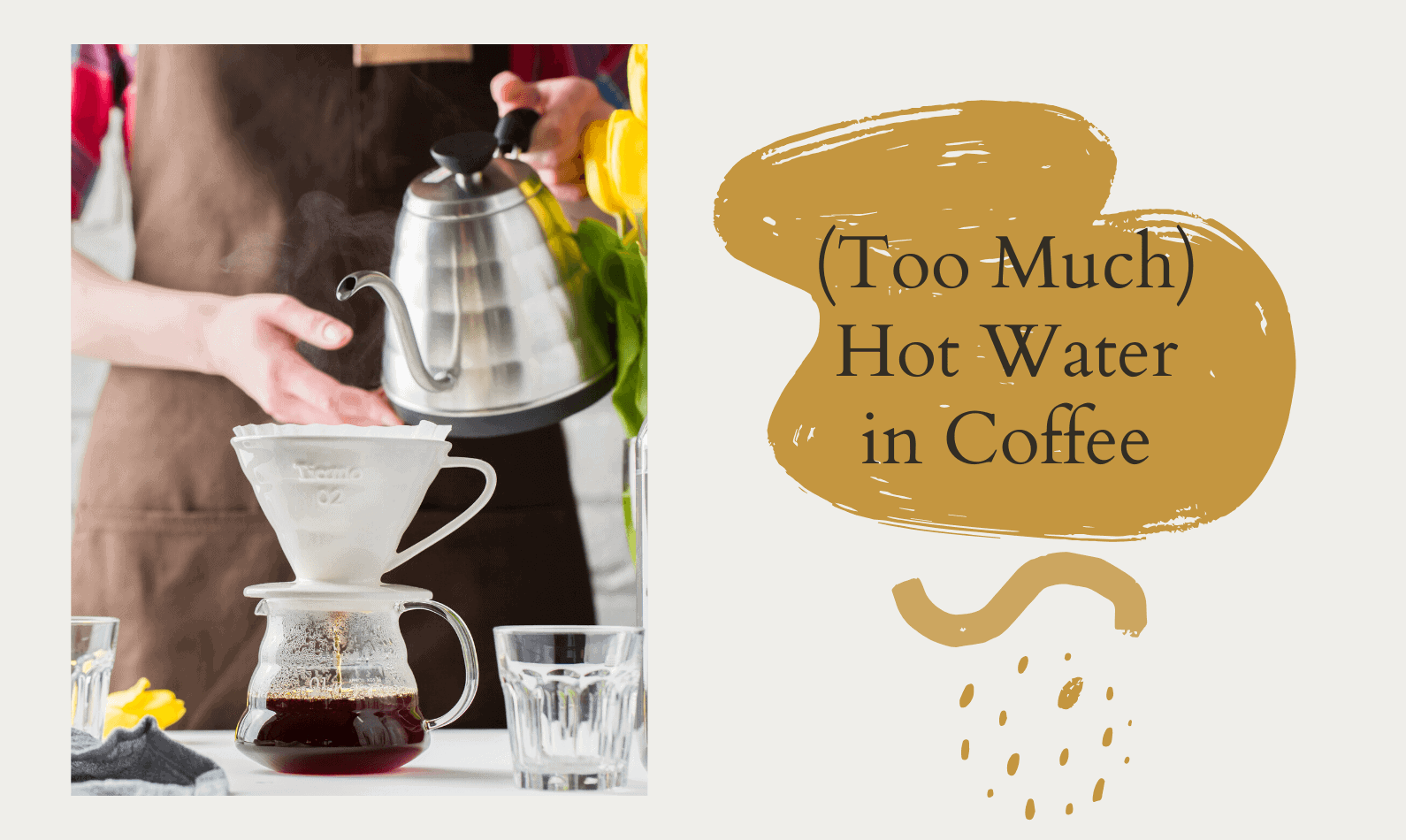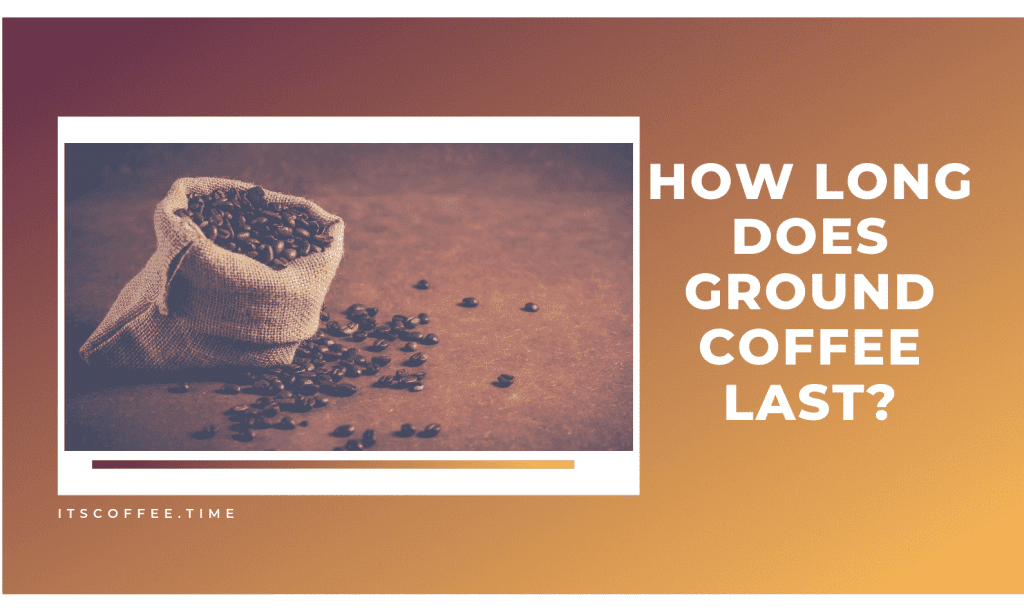How to reduce Bitterness in your Coffee: Bitterness is a common occurrence in coffee and coffee-related drinks. The aromatic profile of coffee depends on bitterness and is sometimes exaggerated. Many things can be the cause of a poorly brewed cup, as coffee can be quite demanding. This article will examine ways to make your coffee less bitter and how to fix it once the coffee has already been brewed. Maybe you need another coffee bean, a brewing process, or a local coffee shop, but whatever the problem, we’ve got you covered on how to reduce bitterness in coffee.
Why your Coffee has a Bitter Taste?
Bitter Coffee: The Culprits
We have gathered the usual suspects: these guys are (most likely) responsible for the bitterness in their morning cup. If any of these are familiar to you, read on to find out how you can clean up your act and make sure your coffee routine at home or office develops into a delicious cup every time.
- Time: prepare the coffee for a long time
- Temperature: Water too hot.
- Quality: Stale or low-quality beans
- Proportion: Too much coffee for the amount of water.
- Grinder: Coffee Beans those are too small
- Cleaning: dirty drawing equipment
All these coffee villains have a back-story, and we’ll reveal them one by one. We will also look at some simple solutions to ensure that good prevails and that your coffee is safe from the toughest enemies.
Ways How to Reduce Bitterness in Coffee? All you Need to Know
1. The Brand of the Clock
The Problem
Cooking too much coffee is one of the most common reasons why your beer tastes bitter. Like tea, coffee gets its flavor by dipping it in hot water. If you let it sit for too long, too many bitter flavors will come out, and your coffee will have a burnt taste.
The Solution
Please find out how long you need to prepare the preparation method you prefer, and 2) Set a timer, so you know when it’s time to enjoy the good things.
2. In (Too Much) Hot Water
The Problem
Many people boil water and brew beer. But 212 ° F is really too hot to make coffee! This is another way that coffee is overcooked.
The Solution
Patience. But if you are like us and you want your coffee now, a controlled temperature kettle will allow you to choose a temperature just below the boiling point (195 – 205 ° F), removing the guesswork and patience.
And if you are doing it the old-fashioned way, try removing the water from boiling for 30-45 seconds is all it takes to lower the temperature to the magical coffee brewing interval. Just remember warmer water = bitter coffee; colder water = weak coffee.
3. Quality Quantity
The Problem
It is a sad fact of life: not all coffee is created equal. The problem with cheap coffee? It is too roasted to cover the imperfections caused by low altitude cultivation and mass collection. When the coffee is too roasted, it has a bitter and burnt taste, more like ash than its fruit. Once the beans have been burned, they cannot be burned.
The Solution
Buy better beans! It may seem expensive to pay ~ $ 16 for a 12-ounce bag of premium coffee, but when you realize that it reaches $ 0.10 per cup (compared to $ 2-3 in a bar chain), it really shows the drastic difference; you will never want to return to the world of bitter beans never.
According to your schedule, join a coffee club, and you can try the special freshly roasted coffee at home. You will broaden your palate by tasting coffee with hints of blueberries, almonds, and even green pepper as you travel the world, one cup at a time! Don’t you think your coffee has a natural flavor like fruit, nuts, or spices? Check out our guide to the coffee taster’s aroma wheel!
4. Too Much Good Thing
The Problem
Don’t get carried away by good things. Adding too much coffee compared to the amount of water you use is an easy way to make your coffee too strong and, in many cases, bitter.
The Solution
Stick to the script. For automatic drippers (see our 5 best options here), try 1 to 1.5 tablespoons of ground coffee for every 6 ounces of water used. For other preparation methods such as the French press or pouring, try 1.5 – 2 tbsp.
If you want to take it to a science, we recommend using a ladder (we love this!) And following our guide on the method of preparation you prefer.
5. What a Daily Mill
The Problem
Sometimes, when you grind the coffee too well, you can overdo it and expose the coffee in the process. How to overcook; this leads to a bitter infusion.
The Solution
Make sure you use the correct grind level for the brewing method you plan to use and, guess what? We cover the grind sizes and more in our brewing guides!
6. A Clean Slate
The Problem
Leftovers from the latest beers can pile up quickly, and math isn’t always pretty. The old coffee residue often adds bitterness and makes your last moldy beer.
The Solution
Clean, clean, clean. A quick tip: it’s always easier to clean your computer right after using it (and you’ll have some fresh liquid in your system!).
The Verdict- How to Reduce Bitterness in Coffee
Don’t forget that coffee is intrinsically bitter, which is what it gives it. It is “football.” However, if your coffee is more bitter (as intolerably bitter), remember everything you just learned:
- Do not immerse coffee too much if you are using a “press” machine.
- Use clean equipment
- Use the correct grind for your fermentation method.
- Water: not too hot, not too cold, and certainly not dirty.
- Switch to a lighter roast
- Try the known regions to make a softer coffee with less acid.
- Experiment with the coffee/water ratio to find the ideal ratio
Read more about Best Ground Coffee Storage Containers: Top Picks 2022
So when someone asks you, “why is my coffee so sour?” You can explain how a coffee hipster was born!




